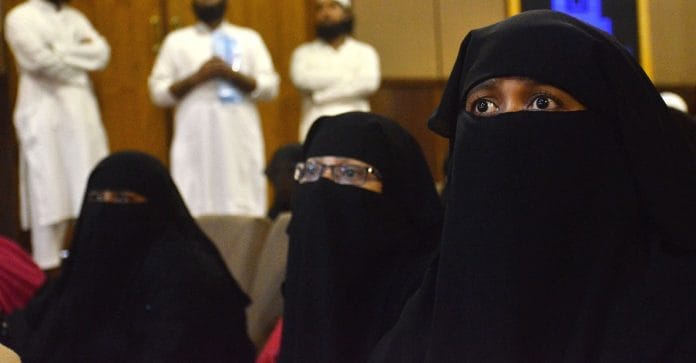Top court is hearing a plea to ban FGM or khatna that is prevalent among the Bohra community; activists say govt should not dilly-dally around the issue.
New Delhi: The Modi government’s opposing stands on triple talaq and female genital mutilation (FGM) reek of doublespeak, women campaigning against the horrific tradition said Monday as they released the first national study on female circumcision.
The practice of FGM or khatna is prevalent among the Bohra community, a small Shia Muslim sect in India.
While WeSpeakOut – a public campaign to help break the silence around FGM — has been urging the government to ban the practice for over three years now, there has been no headway in this regard.
The report titled ‘The clitoral hood a contested site: Khafd or Female Genital Mutilation’, came out on the eve of international day of zero tolerance against FGM.
According to Masooma Ranalvi, founder of the campaign group, this is in sharp contrast to the government’s proactive stand on the issue of triple talaq — a practice the government is aggressively trying to criminalise even in the face of stiff opposition from political parties and minority and women’s rights groups.
“This (Modi) government has been deeply interested in issues of Muslim women. We are also Muslim women. Why have our pleas not been heard,” Ranalvi asked.
However, the issue of FGM must not be seen as one concerning the minority community, but one which violates the fundamental rights of Indian women, argued Congress MP Shashi Tharoor.
“I would condemn anyone who practises FGM the same way I would condemn someone killing a human being in the name of cow,” Tharoor said. “It’s a human rights issue, and must be seen as such.”
Even as Tharoor sought to de-emphasise the communal aspect of the issue, he called the government’s differing positions on triple talaq and FGM “a paradox”.
Arguing that triple talaq was a “safe” issue for the government to rally behind, Tharoor said it remains to be seen if the government pursues this with the same enthusiasm since it is not a “potential political pawn”.
The government had last year filed an affidavit in the Supreme Court which said, “There is no official data or study (by NCRB, etc.) which supports the existence of FGM in India.”
The top court is currently hearing a writ petition seeking a ban on “the inhuman practice of ‘khatna’ or FGM, also known as ‘female circumcision’ or ‘khafd’… making it a cognisable, non-compoundable and non-bailable offence”.
However, given that the practice is not deemed a criminal offence to begin with, how will it show up in the NCRB data, Ranalvi wondered.
Women and child development minister Maneka Gandhi had earlier said that the custom would be banned by the government if the Dawoodi Bohra community does not stop it voluntarily.
“It seems that she (Maneka Gandhi) is under some pressure,” Ranalvi told ThePrint, as she pointed out that the religious head of the Bohra community is very close to the Prime Minister, which might explain the government’s wishy-washy stand on the issue.
Zakia Soman, founder of the Bharatiya Muslim Mahila Aandolan, the group that spearheaded the struggle against triple talaq echoes similar concerns. “FGM is very much prevalent among the Bohras, and the government should not dilly-dally around it,” she said.
Ranalvi said she hoped the survey — which has revealed that three quarters of women among the Dawoodi Bohra sect have undergone female genital mutilation — will increase pressure on the government to ban the practice.







This reflects the BJP government’s perception about Bohra women . they consider Muslim women not a homogeneous group.If they have soft corner and sensitive feelings about the protection of women dignity and honour they have to redresed the every cultural and religious practices which voilate the women rights